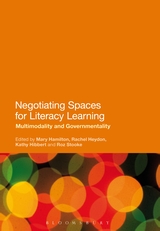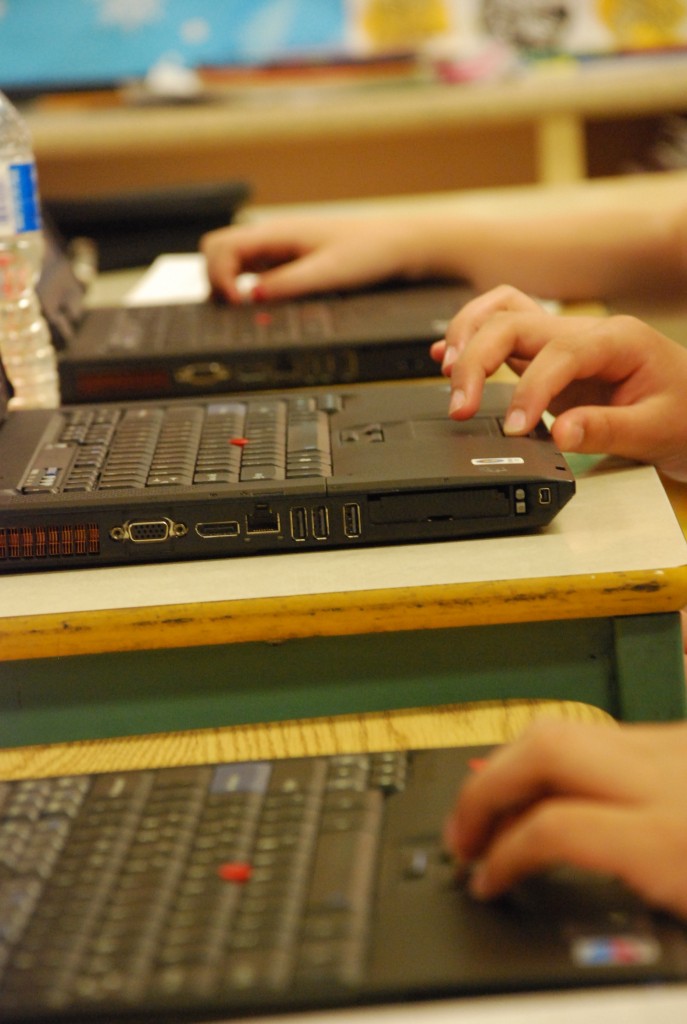In Press!
Hamilton, M., Heydon, R., Hibbert, K. and Stooke, R. (Eds)., Negotiating spaces for literacy: Multimodality and governmentality. London, UK: Bloomsbury.
This volume addresses two strong currents that are sweeping through the contemporary educational field. The first is the opening up of possibilities for multimodal communication as a result of developments in digital technologies and the sensitivity to multiliteracies. The second is the increasing “governing” of their teaching and the imposition of inappropriate testing regimes, with the resulting narrowing of opportunities for diverse expressions of literacy; curricular and pedagogical practices are being pulled out of alignment with the everyday informal practices and the interests of teachers and learners within education.
Bringing together an international team of scholars to examine the tensions and struggles that result from the current educational climate, the book provides a much-needed discussion of the intersection of technologies of literacies, education and self. It does so through diverse approaches, including philosophical, theoretical and methodological treatments of multimodality and governmentality, and a range of literacies – early years, primary, workplace, digital, middle, secondary school, indigenous, adult and place. With a range of examples throughout education and in different parts of the world, the book allows readers to explore a range of multimodal practices and the ways in which governmentality plays out across domains.
Reviews
“In Negotiating Spaces for Literacy Learning an all-star cast discusses the tensions between liberation and control in the digital age. This is the deepest discussion of multimodality and multiliteracies to date.” – James Paul Gee, Mary Lou Fulton Presidential Professor of Literacy Studies and Regents’ Professor, Arizona State University, USA
“Negotiating Spaces for Literacy Learning is an original book that investigates the intersection of technologies of literacies, education, and the self. Fully engaged with the pressures and struggles of education, and the ways in which its regulatory gaze is unfolding across an international landscape of education, the authors combine governmentality and multimodal theories in exciting ways to point to the potentials of expanding communicational repertoires, identity options and literacy for action in an increasingly constrained environment.” – Carey Jewitt, Professor of Technology and Learning, Institute of Education, University College London, UK
“Deeply political and richly illustrated across different populations and varied settings, Negotiating Spaces for Literacy Learning is an engaging collection that features cutting-edge research by international scholars. By pushing and expanding fields in literacy studies like multimodality, the editors and chapter authors couple multimodal theory with theoretical frameworks like actor network theory to complicate the contemporary field of literacy education. Read this edited book and you will appreciate how much the field of multimodality and multiliteracies has moved on.” – Jennifer Rowsell, Canada Research Chair, Brock University, Canada
“This thought-provoking book draws together a diverse group of international scholars who explore, question, critique and challenge thinking and practices relating to multimodality and governmentality. In foregrounding contradictory discourses, Negotiating Spaces for Literacy Learning encourages readers to move beyond accepting the taken-for-granted, and offers multiple ways of “thinking otherwise” about literacy education. It prompts deep thinking and challenges readers to think about literacy futures.” – Robyn Henderson, Associate Professor of Literacies Education, University of Southern Queensland, Australia
“Negotiating Spaces for Literacy Learning is a refreshing analysis of an ‘unholy alliance’: the learning potential of digital communication and the restrictive nature of educational institutions. The chapters in this edited book explore the tension between multimodality and governance. Contradictions between everyday communication practices and educational standards have been obvious for some time. This book demonstrates the reality of that contradiction but rather than maintain polarization it offers new effective spaces and agency for literacy learning in the 21st century.
The chapters provide insights from international researchers across all spheres of education (pre-school, primary, secondary, tertiary, and adult and community education) as the authors document examples of learning within multimodal frameworks in their specific domain. Their insights demonstrate that a ‘regime change’ has already occurred in the theory and practice of literacy education. Within acknowledged complexities of assessment, accountability and governance there is the constant theme that a more creative and diverse curriculum is attainable and necessary for authentic learning.”
Maureen Walsh, Adjunct Professor, Faculty of Education and Arts, Australian Catholic University and Honorary Professor, Faculty of Education and Social Work, University of Sydney
See more at: http://www.bloomsbury.com/uk/negotiating-spaces-for-literacy-learning-9781472587480/#sthash.3e5hgI9c.dpuf


